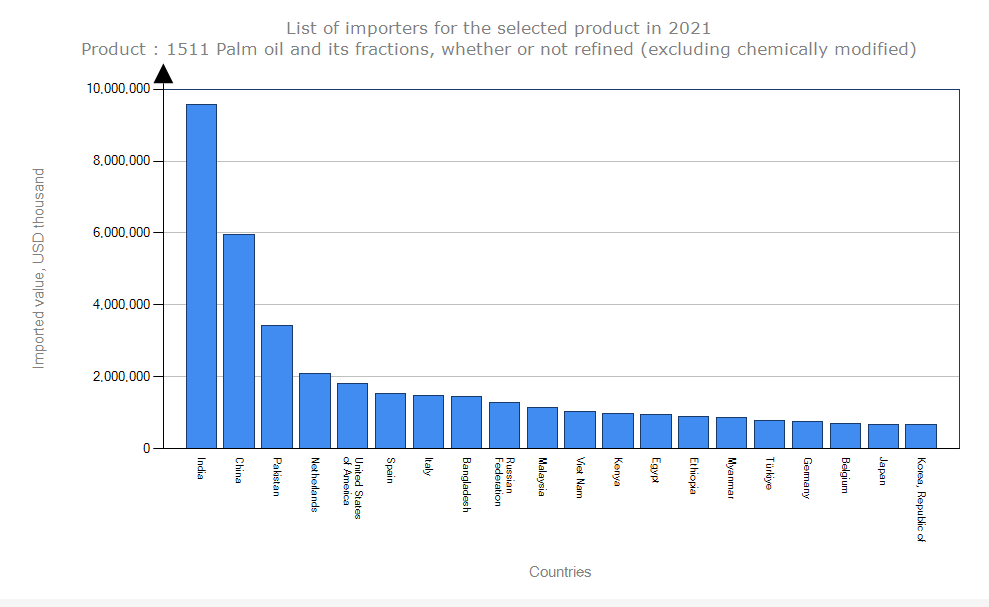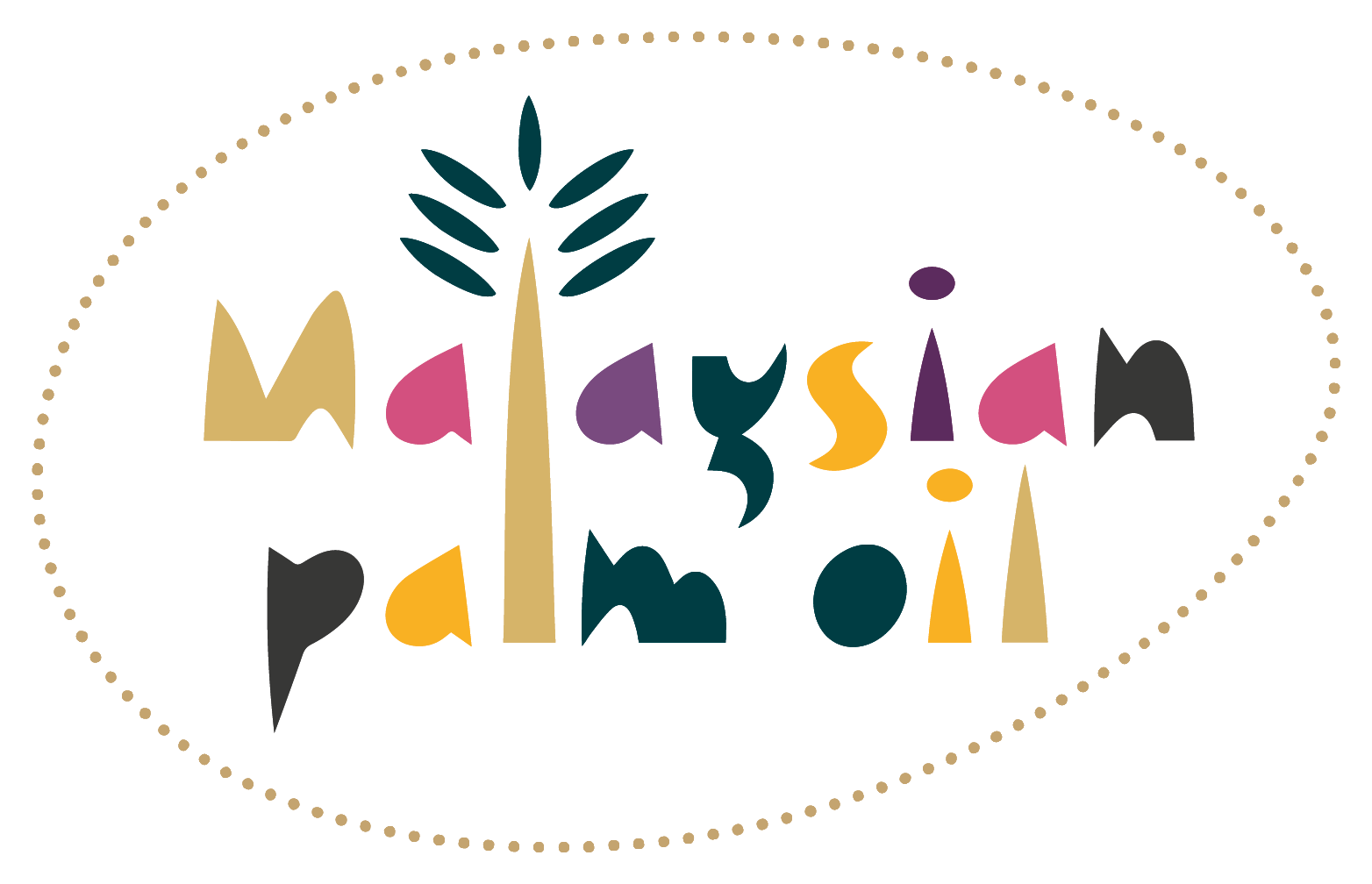Trade
Palm oil is the worldâs most traded vegetable oil â and itâs the largest agricultural export from both Malaysia and the Southeast Asian region.
Vegetable oil is a food staple across the world, particularly in developing countries, where vegetable oil makes up a sizeable part of household food budgets. Itâs therefore vital that these households have access to cheap and reliable vegetable oil.
Malaysia is the 5th world largest producer of oils and fats, accounting for 8.4% of total global oils and fats production. It is the 2nd largest exporter of oils and fats, exporting 15.72 million tonnes in 2022, Â representing 17.1% of total global oils and fats exports, and 31.4 per cent of the global PO trade.
The biggest markets for palm oil are now India, China, the EU and Pakistan. Three of these are large emerging economies with growing populations, while the EU is a large economic bloc with a significant food production sector.

Although India is the largest importer of palm oil, imports have grown significantly in Pakistan and China over the past five years.
COVID and Conflict Impacts
The supply chain disruptions caused by COVID and the Russia-Ukraine conflict have created shortages and pushed vegetable oil prices to historic highs. This has led to food riots in Indonesia and other countries where shortages left households without vegetable oil or pushed prices beyond the financial reach of families.
Even in Europe, food processors found themselves short of local vegetable oil such as sunflower, prompting them to switch to imported palm oil.
This underlines the importance of palm oil in the global food supply chain â and precisely why the trade in palm oil, like other agricultural products, needs to be open.
Free and Fair Trade
The fall out from the COVID pandemic and conflict around the globe have indicated that the free and fair trade of agricultural commodities â particularly vegetable oil â are absolutely vital to ensuring the health and wellbeing of citizens around the globe.
The reduction in the supply of vegetable oil caused by these events resulted in a significant price spike that will likely remain for many years to come.
In these circumstances, where supply shortages and food inflation are adding to misery around the globe, it is vital that unnecessary and overburdensome trade regulations that impact the global vegetable oil trade be removed.
This includes non-tariff measures that prevent the use of palm oil in renewable energy, unscientific health regulations, and onerous sustainability measures. These types of technical trade restrictions are often simply protectionism disguised as a health regulation or sustainability measure. Rather than being sustainable, these measures have the opposite effect, sending prices upwards and preventing people from living the lives they deserve.
